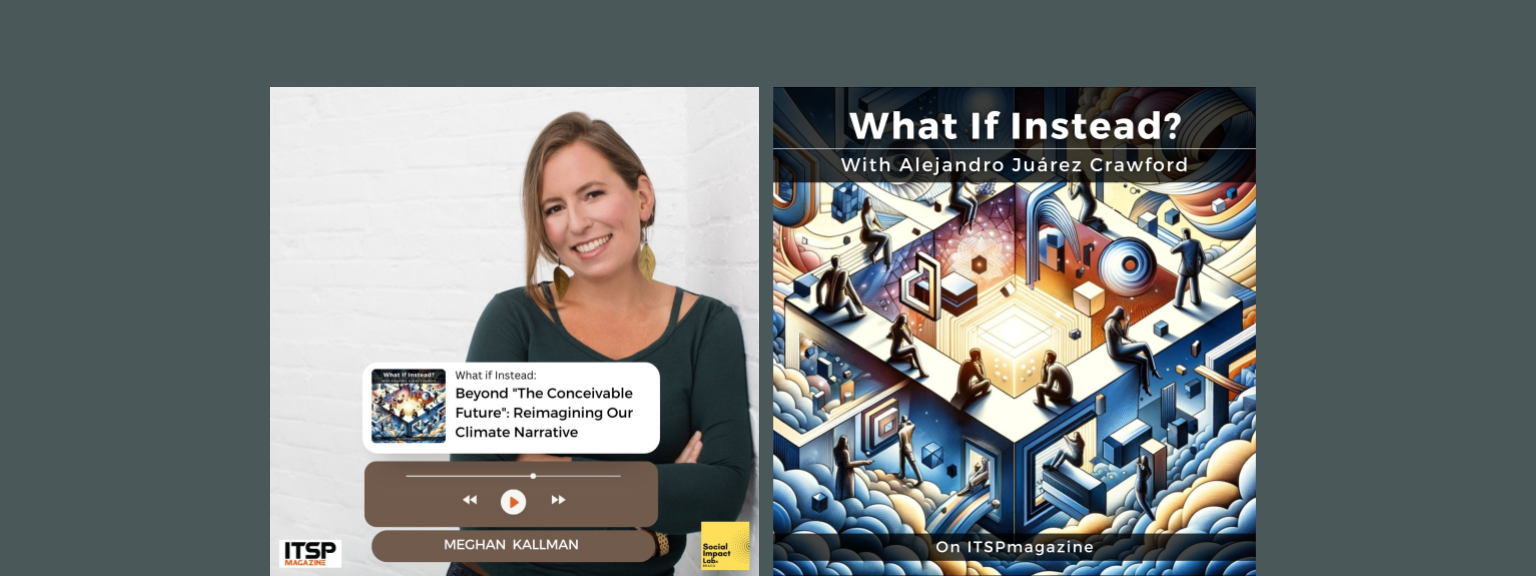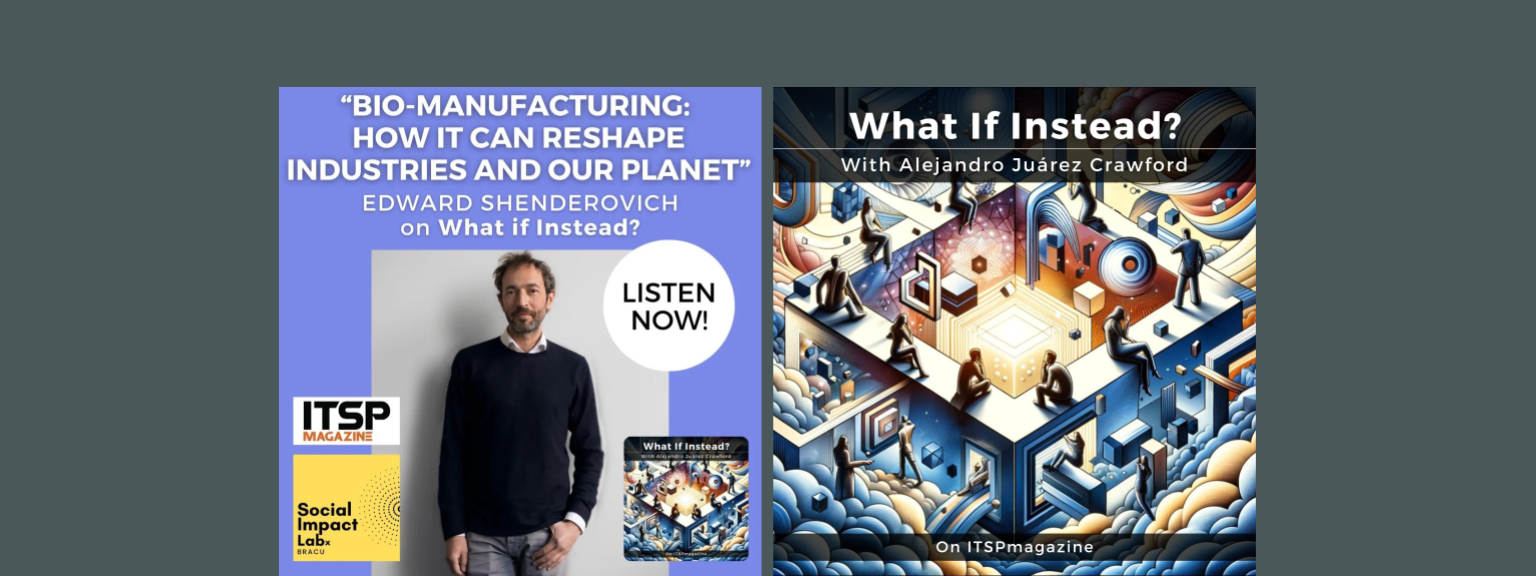Beyond “The Conceivable Future”: Reimagining Our Climate Narrative
An overload of distressing climate news can often lead to a sense of paralysis. In the new episode of What if Instead?, Rhode Island State Senator Dr. Meghan Kallman presents a powerful alternative, challenging us to listen to each other, stop scolding others, and create dialogue across social and political divisions. Kallman speaks from experience – as Rhode Island state senator, Associate Professor at the University of Massachusetts in Boston, and founder of the nonprofit Conceivable Future.
When facing a challenge or an obstacle to progress, Kallman suggests we take stock and find a place to engage actively:
We need people to know the contours. We need to know what we’re up against. More information often does not lead to more agency… What often leads to more agency is taking stock of what your feelings are and finding a place to plug in meaningfully.
This nuanced approach to climate action focuses on the importance of acknowledging and processing our feelings rather than suppressing them. Kallman explains how acknowledging, rather than suppressing feeling about the ongoing climate disaster can lead to the sustained engagement with climate issues we so urgently need:
We’re certainly not advocating that people should stop feeling things about the climate crisis. That’s not realistic. We have more space for coming together to create meaningful connections with others who are also interested in action.
Kallman addresses the common misconception that population growth is the culprit. In fact, consumption patterns and the institutions that perpetuate them drive climate change. In this way, Kallman challenges the narrative that places undue guilt and shame on individuals, especially regarding their reproductive decisions:
Population is correlated with climate harm only to the extent that it’s also based on consumption. We ought to be looking at the institutions that foster and foment overconsumption.
And what can we do about it? To begin with, stop scolding people and create a space to work together: What if instead we stopped scolding people… and instead we created some systems of solidarity that didn’t focus on your reproductive life as the site of your political action? Playing the blame game across generations and political lines is understandable – but to beat our common crisis, we must urgently reach out across divisions: There are some generational resentments that exist in both directions. The moral of the story… is you have to listen to other people’s reality and not dismiss it because it’s not yours. Tech, too, can be easy to blame – but can be a powerful tool for forging connections and collaborating on the crisis at hand:
Technology is a fact of life… There are really socially beneficial and socially consequential ways to work with technology. Post-pandemic, technology can empower people by creating connections that feel meaningful.
Can we leave off blaming and scolding the other team long enough to beat the enemy at our gates? Kallman gives specific examples that suggest we can and must. whether it’s someone from the opposing political party or a different generation. Tune in to the episode to hear more from Meghan Kallman on these critical issues. Beyond “The Conceivable Future”: Reimagining Our Climate Narrative | A conversation with Dr. Meghan Elizabeth Kallman | What If Instead? Podcast with Alejandro Juárez Crawford and Miriam Plavin-MastermanWhat if Instead? is produced by Srijan Banik and the team at Social Impact Lab at BRAC University, which Banik founded. Cohosts Mim and Alejandro’s One Size Fits None: Time for an Entrepreneurial Revolution, is forthcoming from Emerald Publishing in Summer 2025.


